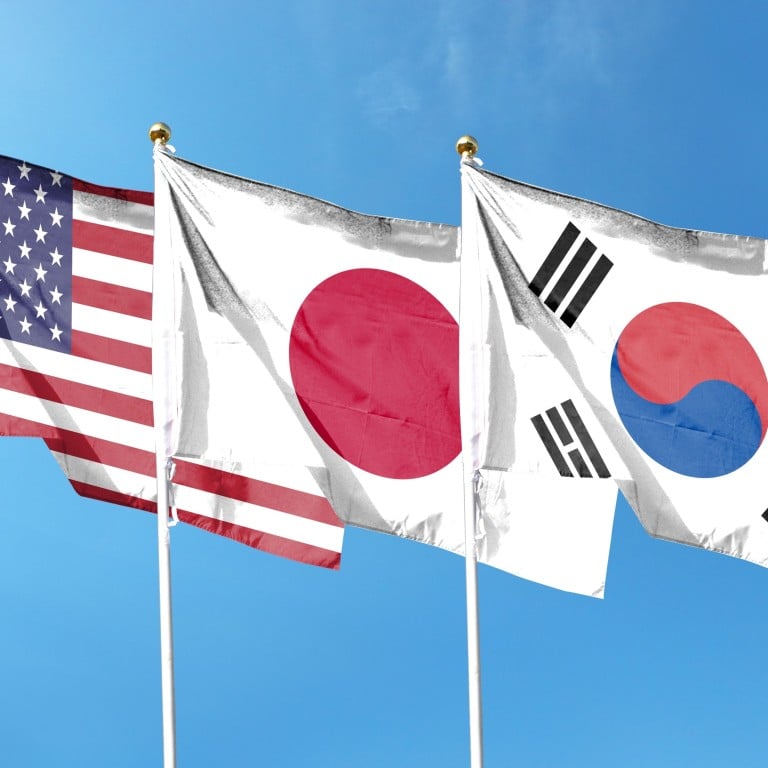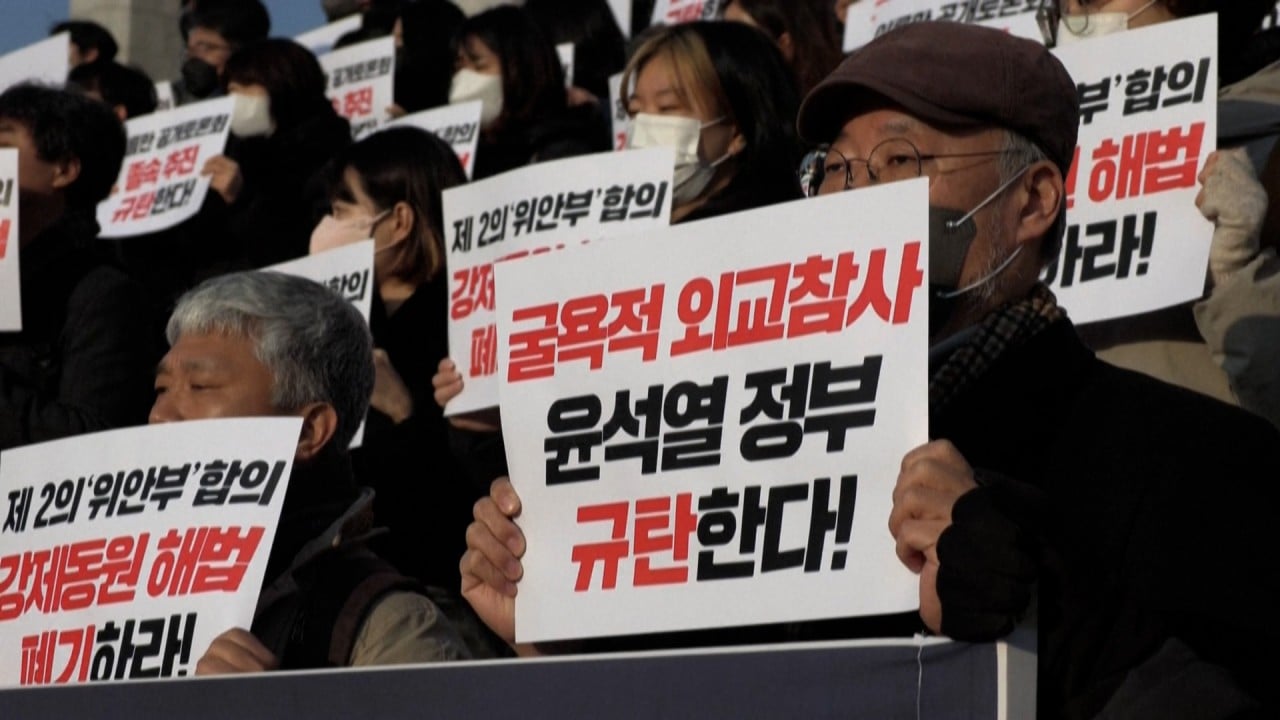
How US-led alliance aims to mend Japan-South Korea ties and rein in China
- Washington hopes ‘trilateral’ strategy will contain Beijing, while Seoul seeks to deter Pyongyang, observer says
- But controversy over Japanese compensation for WWII victims and South Korean reliance on Chinese trade could limit cooperation
US official sees stronger ‘trilateral’ relationship with Japan and South Korea
Park Won-gon, professor of North Korean studies at Ewha Womans University in Seoul, said the White House hoped that trilateral cooperation could help South Korea and Japan overcome unstable ties, with the US taking the lead in the relationship.
“So it is more advantageous to promote multilateral cooperation between Seoul, Tokyo and Washington to maintain the stability and sustainability of the security commitment against China and North Korea,” he added.
One major stumbling block between Tokyo and Seoul has been compensation for South Koreans forced to work for Japanese firms during World War II. But a recent South Korean proposal to use a domestic fund rather than direct payments by Japanese firms has raised hopes for a thaw.
Tokyo refused to abide by the ruling and insisted that the compensation issue had already been settled under a 1965 treaty, a position disputed by Seoul.
Park said Seoul’s new proposal – if accepted by Tokyo – could help put bilateral ties back on the right track, but the South Korean government would still need to address issues such as public demand for a formal apology by Japan.
“It will certainly improve the relations between the two countries,” Park said. “But Seoul’s new plan must be accompanied by contributions from the responsible Japanese firms and Tokyo’s apology to achieve the minimum approval among the South Korean public.”
Frank Aum, senior expert on Northeast Asia at the United States Institute of Peace, said Seoul’s new plan to resolve strife with Tokyo had already encountered resistance from victims, which has affected efforts to restore bilateral cooperation.
Speaking at Johns Hopkins University last week, Kishida said restoring strained ties with South Korea had become one of his priorities.
“The security partnership among Japan, the United States and the Republic of Korea is becoming increasingly important. I intend to enhance security cooperation among our three countries,” Kishida said.
“You may be worried about the relationship between Japan and the Republic of Korea, but I intend to resolve the bilateral issues of concern as quickly as possible to restore sound Japan-ROK relations and further promote them,” he added.
US-China rivalry ‘hampering efforts to denuclearise Korean peninsula’
The South Korean foreign ministry said patching up ties with Tokyo was one of Seoul’s priorities for the coming year.
“South Korea, Japan and the United States all have different emphases in trilateral cooperation,” Park said. “Washington has a strong intention to use trilateral ties to contain China, while deterring the North Korean threat is more important for Seoul, and Tokyo wants to achieve both.”
“It seems clear that China’s lack of cooperation would reinforce the trilateral ties.”
South Korea tipped to tack to US, putting strategic ambiguity behind it
Aum said while South Korea might work more closely with Japan on issues such as climate change and health security, Seoul would refrain from upsetting China on matters Beijing considered central to its national interests.
“It is clear that South Korea does not want to take steps that appear to attack, criticise, or gang up against China, so certain types of bilateral and trilateral cooperation, particularly in the security and economic realm, will be limited.”


.jpg?itok=Q7JMV5zU)
